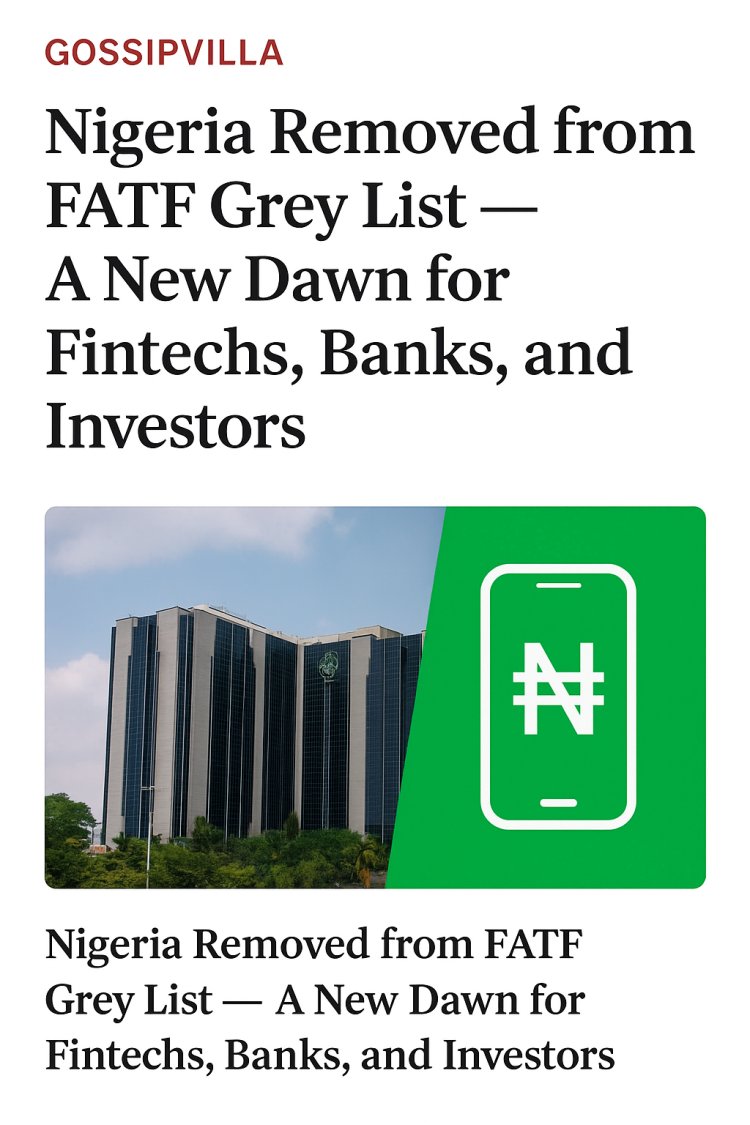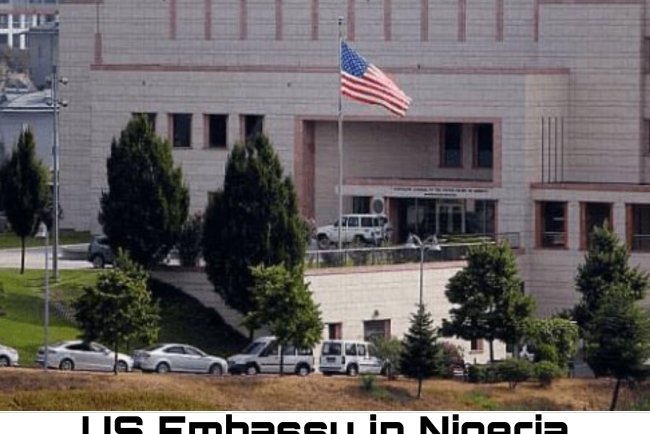Nigeria Removed from FATF Grey List A New Dawn for Fintechs, Banks, and Investors
Nigeria has been removed from the FATF grey list after major banking and fintech reforms. Learn how this move restores global trust, attracts investment, and boosts remittance flows.

After years of global scrutiny, Nigeria has finally been removed from the Financial Action Task Force (FATF) grey list a move that signals renewed confidence in the country’s financial system and regulatory standards. The FATF confirmed this update at its October 2025 plenary session in Paris, marking a significant victory for Nigeria’s ongoing fight against money laundering and terrorism financing.

Why This Matters
For over two years, Nigeria’s inclusion on the FATF grey list made international transactions more difficult. Many global banks and fintech platforms considered Nigeria a “high-risk” country, forcing stricter compliance checks and sometimes blocking cross-border payments entirely.
This removal means Nigerian financial institutions, startups, and investors can now operate with greater credibility and smoother access to international partners.
“Nigeria has demonstrated substantial progress instrengthening its anti-money-laundering and counter-terrorism-financing frameworks,” the FATF noted in its official statement.
What Led to This Decision
Several reforms under the Central Bank of Nigeria (CBN) and other regulatory agencies contributed to this achievement:
Stronger Know-Your-Customer (KYC) guidelines for banks and fintechs.
Updated PoS and mobile-money regulations, including geo-tagging of agents to prevent fraud.
Creation of inter-agency task forces to investigate suspicious transactions and strengthen reporting systems.
Improved coordination between the CBN, EFCC, and the Nigerian Financial Intelligence Unit (NFIU).
These steps addressed the weaknesses identified by the FATF in 2021 and showcased Nigeria’s determination to meet international financial standards.
Impact on Nigeria’s Economy and Tech Ecosystem
The decision will have immediate and long-term effects on Nigeria’s economy particularly in the financial-technology and investment sectors.
1. Fintech Expansion:
Nigerian fintech startups like Flutterwave, Moniepoint, and Paystack can now process global transactions faster and partner more easily with foreign banks without facing compliance delays.
2. Investor Confidence:
Global investors who once hesitated due to regulatory uncertainty are likely to reconsider Nigeria as a viable destination. This could lead to a rise in venture-capital funding, foreign direct investment, and tech partnerships.
3. Remittance Boost:
Nigeria is Africa’s largest remittance market, with over $17 billion inflows yearly. The FATF delisting is expected to make sending money into the country easier and cheaper, benefiting millions of families.
4. Better Credit Access:
Banks may now receive improved credit ratings and reduced international transaction costs, strengthening the local economy.
The Bigger Picture
Nigeria’s removal from the FATF grey list is more than just a regulatory update; it’s a statement that the country is ready to play on the global financial stage. However, maintaining this status will require continuous enforcement, transparency, and collaboration between public and private sectors.
Experts warn that without consistent monitoring, Nigeria could risk slipping back into the list. Sustaining clean practices, investing in digital compliance systems, and promoting ethical banking will be essential to keeping investor trust.
With this development, Nigeria is positioning itself as one of Africa’s most trusted financial hubs. The news comes at a time when the country is also seeing growth in the digital economy from fintech and e-commerce to digital payments and blockchain-based services.
This shift could open the door to more regional partnerships, technology transfers, and innovative financial solutions that will drive inclusion and prosperity for millions of Nigerians.
Sources:
What's Your Reaction?




















